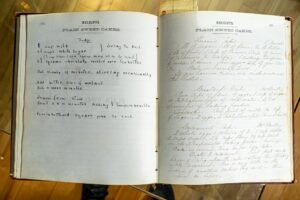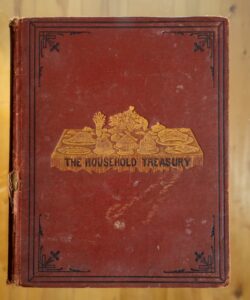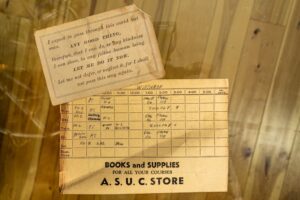 Did a relative die and leave photos, papers, books, and letters? How do you value the collection? Maybe you really didn’t want the collection due to lack of space or interest, or you already own too many things. First, let’s define what you have been left. You’ve got an archive, a collection of documents created or gathered by one person or institution, selected for preservation as evidence of their lives.
Did a relative die and leave photos, papers, books, and letters? How do you value the collection? Maybe you really didn’t want the collection due to lack of space or interest, or you already own too many things. First, let’s define what you have been left. You’ve got an archive, a collection of documents created or gathered by one person or institution, selected for preservation as evidence of their lives.
These archival collections can come in the form of documents, maps, photos, three-dimensional objects, digital files, ledgers, certain books, records of an event, and manuscripts. The task of sorting through the archive may dismay you. However, those objects comprise a story “told” by one person through a sequence of events. Pieced together the individual events often offer a fascinating life history.
I often encounter such personal archives when a bewildered executor shows me grandfather’s library or dad’s garage, or even grandmother’s cooking records. Temptation arises to separate the archive into separate categories to sell. These collections, meant to tell a story as a whole entity are, for this reason, absorbed by historical museums or university repositories, or even local preservation trusts. Your relative might have written pages, composed journals or kept albums. Relevant groups and clubs and businesses collect these.
What about books?
 We include books in an archive if those books pertain to the person’s work or training. Keeping an archive together may challenge you in your own home, but check local libraries, museums, or county offices. Special collections departments within university libraries keep rare books and personal papers and artwork. A gift of an archive to a not-for-profit organization is tax deductible. For example, the Berg Collection at the NY Public Library contains 35,000 printed volumes, pamphlets, broadsides, and 2,000 linear feet of literary archives and manuscripts, featuring the work of over 400 authors.
We include books in an archive if those books pertain to the person’s work or training. Keeping an archive together may challenge you in your own home, but check local libraries, museums, or county offices. Special collections departments within university libraries keep rare books and personal papers and artwork. A gift of an archive to a not-for-profit organization is tax deductible. For example, the Berg Collection at the NY Public Library contains 35,000 printed volumes, pamphlets, broadsides, and 2,000 linear feet of literary archives and manuscripts, featuring the work of over 400 authors.
 I urge clients to keep an archive together if keeping, selling, or donating it, based on the principle of provenance: documents and objects received from the same source retain more valuable when kept together. ‘Provenance’ means the history of who owned the records; one-person ownership increases the archive’s value, whether the value is evidential or monetary. Taken as a whole records become one person’s unique perspective of events. We consider a record reliable if the information is correct, or perceived as correct. Some archivists (Yes, such experts exist.) bemoan the loss of letter writing because a signature shows proof of authenticity of a certain occurrence.
I urge clients to keep an archive together if keeping, selling, or donating it, based on the principle of provenance: documents and objects received from the same source retain more valuable when kept together. ‘Provenance’ means the history of who owned the records; one-person ownership increases the archive’s value, whether the value is evidential or monetary. Taken as a whole records become one person’s unique perspective of events. We consider a record reliable if the information is correct, or perceived as correct. Some archivists (Yes, such experts exist.) bemoan the loss of letter writing because a signature shows proof of authenticity of a certain occurrence.
I’m amazed at the prices paid for whole archives at auction in the last years. Photos, handwritten materials, printed programs and pamphlets, and manuscripts in hardcopy are becoming things of the past.
who do you think you are?
 An archive answers this question for the person building it. Carefully consider how every item relates to the rest of the collections. That archive passed on to you speaks of the identity of your family member, and possibly the whole family.
An archive answers this question for the person building it. Carefully consider how every item relates to the rest of the collections. That archive passed on to you speaks of the identity of your family member, and possibly the whole family.
Instead of parsing out and selling parts of an archive, or worse, dumping the archive, consider donating the whole. Suggestions of where to donate include: national archives, county, community, university/college, school, church, a business, a gallery, a museum, the police department, a local theater.
You can often sell the whole archive. My favorite archive dealer is Marco Panella of Marlboro, VT at Auger Down Books: Graphics & Archival Americana. Check out the prices he asks for archives like your grandfather’s.
Pingback: Value of All Things Bob Dylan - Elizabeth Appraisals